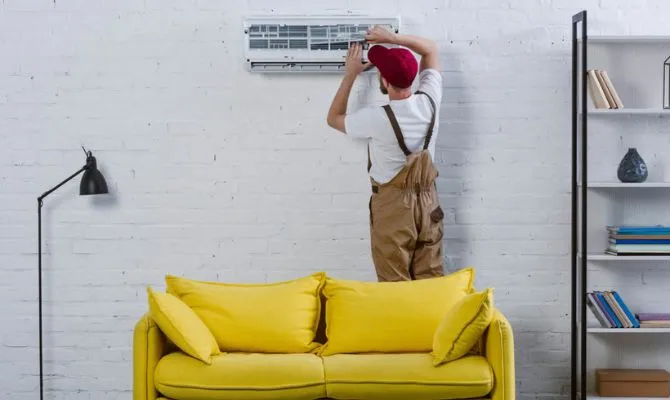With the arrival of spring, we’re all embracing the sunny days and warmer temperatures, eager to kiss winter goodbye. As we’re busy escaping our homes for some warmth and sunshine, we tend to forget that once spring is over, we’ll be facing summer and its more intense heat. In fact, we’ll be looking for ways to stay cooler as the mercury in our thermometers climbs, and that brings us to air-conditioning.
It’s rare today not to take advantage of air-conditioning to keep ourselves comfortable indoors during the summer. But, if you want to instal air-conditioning in your home, which type of system should you choose: central air conditioning, ductless a/c or a heat pump?
Central Air Conditioning: Pros and Cons
Central air-conditioning removes heat from your home, transferring it to the outdoors by using refrigeration technology.
Its advantages include cooling the entire home and making use of the existing duct system. Central air systems require air filters, which keep the air cleaner. They can be used with programmable thermostats, making them easy to operate, and they require little maintenance.
On the downside, they can be more expensive to instal than some other systems and may be more costly, given that they cool all the rooms in the house.
Nonetheless, a central a/c system is generally still cheaper than having window units in various rooms.
Central air requires an outdoor compressor, which may be noisy and annoying if it’s located in an area you use for socializing.
Ductless A/C: Pros and Cons
A ductless system doesn’t use ducts to distribute cool air throughout a home; instead, it extracts heat and humidity from individual rooms and expels it outdoors, where it is compressed and chilled to cool each room. It requires multiple units to circulate the cool air. These units are generally mounted on the walls, floors or even the ceiling of each room you want to cool. An outdoor unit containing a condenser is also required.
Ductless A/C allows you to cool each room to a different temperature or to decline to cool individual rooms that aren’t in use, so it offers flexibility. It is ductless, so there’s no need to clean ducts or cut holes in walls and no need to open or close ducts to alter the temperature.
However, the system can be more expensive to instal than central air conditioning, given the multiple units involved, and some people consider these units an eyesore. If they are all operating simultaneously, they may be noisier than central A/C.
Heat Pumps: Pros and Cons
A heat pump system can move heat in two directions: into your home or out of your home. It can be used to both cool and heat your home, until extreme cold sets in and you may want to use a furnace. Traditional heat pumps extract heat from the air, while geo-thermal pumps draw on heat from the ground. A heat pump can be used in combination with a ductless system or with a traditional central air configuration.
Heat pumps generally use less electricity than systems that rely only on electricity for cooling, saving money in the long run. They are also ecologically friendly, because they reduce carbon emissions. They generally require less maintenance than combustion systems and are safer, because they do not need fuel to operate.
They aren’t the perfect solution for everyone, however. They do generally cost more upfront and are more difficult to instal; they may cause some disruption to your home and garden.
What Air Conditioning System Is Best?
In addition to all the aforementioned factors, assess the size of the space that needs cooling and whether you have existing ductwork. Next, consult with an HVAC professional. They install air-conditioning regularly and will know which works best for your type of dwelling and can offer you professional insights and guidance.



